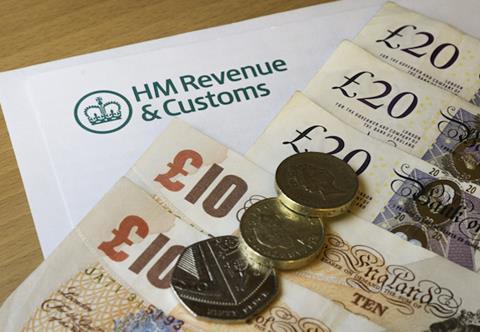
The government has published draft guidance on the changes to certain benefits that attract tax and national insurance contribution (NIC) advantages when offered through a salary sacrifice arrangement for the 2017-2018 tax year.
The changes form part of the Finance Bill 2017 and are due to come into effect from 6 April 2017. The draft guidance will be finalised and published in the Employment Income Manual after the Finance Bill has received royal assent.
The salary sacrifice arrangements, referred to as optional remuneration arrangements, that fall within the scope of the changes are benefits in kind (BIK) with a cash allowance option and flexible benefits schemes with a cash option.
The government defines two arrangements through which it would consider a benefit as being offered under an optional remuneration arrangement. Under a type A arrangement, an employee sacrifices the right, or the future right, to receive an amount of earnings that would be chargeable to tax under Section 62 of the Income Taxes, Earnings and Pensions Act (ITEPA) 2003 in return for the benefit.
In a type B arrangement, the employee agrees to be provided with a benefit rather than an amount of earnings, such as the option of a cash allowance.
If an employee selects a benefit instead of some form of cash pay, the taxable value of the benefit is the greater of the amount of cash pay sacrificed and the taxable value under the normal BIK rules. If the two are the same, then normal benefit valuation rules will apply.
The benefits that are exempt from the changes include childcare vouchers and employer-provided childcare, ultra-low emission vehicles (ULEVS), bikes-for-work schemes and associated equipment, contributions to registered pension schemes and pensions advice.
A transitional period will mean that arrangements entered into before 6 April 2017 will remain subject to pre-2017 benefit valuation rules up until 6 April 2018. The transition period for car schemes involving vehicles that emit more than 75 CO2/km, living accommodation, and school fees will remain in place until 6 April 2021.
However, the new rules will apply if there is a variation or modification in the arrangement, as well as a renewal, including auto-renewals, during the transition period. An arrangement will not be considered varied where the variation relates to replacement because of accidental damage or for reasons beyond the control of the parties.
Chancellor Philip Hammond first confirmed that the range of benefits that attract tax and national insurance advantages would be limited in the Autumn Statement 2016. The announcement followed a government consultation, which ran from 10 August to 19 October 2016. The government published draft legislation in December 2016.
Jeff Fox, principal, online benefits technical lead at Aon Employee Benefits, said: “The distinction introduced by the type B arrangement is easy to overlook. In short, it is the flexibility or choice that is taxable, but creates complexity because choice may not be easily recorded. It could catch many cash-in-lieu arrangements including company cars and flexible benefits where the employer provides cover or funding for core benefits.”











